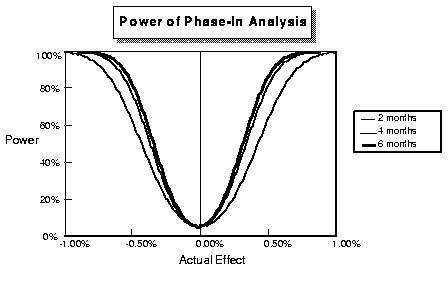
Figure 2: Power of test of effectiveness of telephone interviewing, to obtain data on the unemployment rate, as additional rotation groups move to telephone interviewing over 2, 4 and 6 months.
Major changes are about to be introduced to enumeration methods for the LFS. Telephone interviewing, for second and subsequent surveys, is to be introduced later this year. Use of laptop computers, to assist during interviews, is planned for late 1997. As well as affecting optimal survey design, this sort of change might impact responses from the sample, affecting the time-series from the survey. Before introducing any significant operational change, the ABS undertakes a testing program to identify and measure any effects on the series. The testing program is heavily reliant on mathematics, both in the design and analysis stages.
Even small effects on series, such as the unemployment-rate, can be of strong interest to policy-makers and analysts.

Very large samples are required to provide tests of the appropriate power. This presents cost difficulties, as well as operational difficulties in controlling factors of the experiment, as one would like to in an experimental design. Such factors can include block and area effects, interviewer effects, number of times in survey effects, time of surveying effects and personal versus proxy respondent effects.
Statisticians are required to develop testing strategies to optimise the power of the tests, and obtain the best possible estimate of the effect of new methods on estimates, within often stringent cost and operational constraints. Each new operational decision necessitates some rethinking of the appropriate strategy, and possible pooling of results from earlier studies. Figure 2 shows the increasing power of a telephone interviewing test conducted on a subsample of the LFS, as data is accumulated over time.